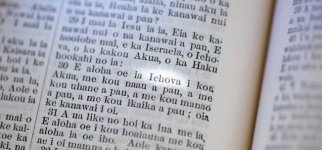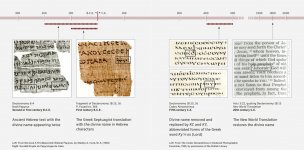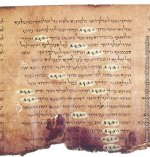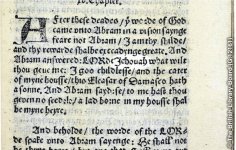Addressing the Question: "Is the Name 'Jehovah' an Invention of the Watchtower Society?"
No, the name “Jehovah” is no more of an invention than the names “Jesus,” “Joshua,” or “Jonathan.” Such a
claim requires others to be extremely ignorant.
And the “Watchtower” hides absolutely nothing regarding the origin of the English pronunciation Jehovah. [The] suggestion [made in this question] is untrue and dishonest as can be seen by just a couple of the many quotes in the Witnesses’ literature:
"In 1278 it appeared in Latin in the work Pugio fidei (Dagger of Faith), by Raymundus Martini, a Spanish monk.
"Raymundus Martini used the spelling Yohoua. Soon after, in 1303, Porchetus de Salvaticis completed a work entitled Victoria Porcheti adversusi impios Hebraeos. In this he, too, mentioned God's name, spelling it variously Iohouah, Iohoua and Ihouah.
"Then, in 1518, Petrus Galatinus published a work entitled De arcanis catholicae veritatis in which he spells God's name Iehoua. The name first appeared in an English Bible in 1530, when William Tyndale published a translation of the first five books of the Bible. In this he included the name of God, usually spelled Iehouah, in several verses, and in a note in this edition he wrote: ‘Iehovah is God's name . . . Moreover as oft as thou seist LORD in great letters it is in Hebrew Iehovah.’" – The Divine Name That Endures Forever, WTB&TS.
Jehovah is an accurate rendering of the Divine Name and did not "originate" with the thirteenth century.
The form "YeHoWaH" is in the earliest vowel pointed Hebrew texts, including the Aleppo Codex and the Codex Leningradensis.
The Catholic Encyclopedia (1913) says:
"Jehovah (Yahweh): The proper name of God in the Old Testament;.... Finally, the word is found even in the "Pugio fidei" of Raymund Martin, a work written about 1270. PROBABLY THE INTRODUCTION OF THE NAME JEHOVAH ANTEDATES EVEN R. MARTIN. No wonder then that this form has been regarded as the true pronunciation of the Divine name by such scholars as Michaelis, Drach, and others."
So the origin of the English pronunciation is rooted in all the ancient languages.
The name Jehovah is NOT an erroneous “invention.” It correctly retains the exact four letters or Tetragrammaton of God’s name in Hebrew.
Then, recent discoveries and studies have given solid evidence that YHWH had to have three syllables, not two! So, Yahoveh/Yehoveh now seems to be the most accurate. In fact, in light of the evidence, in English Jehovah may be as close to the original pronunciation as one could get in translating any name from Hebrew to English or other languages.
(See George Wesley Buchanan; "How God's Name Was Pronounced", Biblical Archaeology Review Mar./Apr. 1995 Volume 21 Number 2; page 30. Harris, Archer, Waltke; "Theological Wordbook of the Old Testament" #484. James Trimm; "Nazarenes and the Name of YHWH" and "In Fame Only?" by Gerard Gertoux)
When we accept the overwhelming evidence for a tri-syllable pronunciation, the acceptable vocalizations vary relatively little in their pronunciation from the sound of "Jehovah." So, it is clear that "Jehovah" does accurately represent the Divine Name.
"Jehovah" can be verified as an accurate rendering for YHWH by examination of theophoric names.
The original Hebrew name for God’s son is a theophoric because it contains the Divine Name. It is written YHWSA. No one knows exactly how it was pronounced but either Yeshua or Yehoshua are acceptable. And even though "Jesus" does not retain the Hebrew pronunciation it is the most recognizable is a perfectly accurate pronunciation.
If you accept "Jesus" as correct, then you have to accept Yeh(o)-/Jeh(o)- as the first part of the Divine Name. Other theophoric names in the Bible support this prefix as well as The Name having three syllables.
Therefore, we can properly render the Hebrew "tetragrammaton" YHWH/JHVH as Yehowah, Yahweh or Jehovah.
Replacing the Divine name with a common title "LORD" is the most blatant of blasphemies and elicits the strongest of condemnation (Rev. 22:18,19). It is imitating Satan, who refused to used that Name, and it is a refusal to imitate Jesus who "made that name known" to all his followers and placed it first, of primary importance, in his model prayer (Jn.17:6,26; Mt.6:9).
God made it clear that Jehovah would be his Eternal Name (Ex. 3:15, Mic. 4:5; Jer.23:27). It was manifestly Christ’s determination to make Jehovah's name known to Christians (Jn. 17:6, 26 (Cf. Jn. 12:28; 17:4, 26; Rev. 1:5).
In the end times True Christians would be associated with the Father’s Name (Acts 15:14; Amos 9:11, 12). Refusal to use some proper form of that Name would therefore be a denial of being truly Christian.
No, the name “Jehovah” is no more of an invention than the names “Jesus,” “Joshua,” or “Jonathan.” Such a
claim requires others to be extremely ignorant.
And the “Watchtower” hides absolutely nothing regarding the origin of the English pronunciation Jehovah. [The] suggestion [made in this question] is untrue and dishonest as can be seen by just a couple of the many quotes in the Witnesses’ literature:
"In 1278 it appeared in Latin in the work Pugio fidei (Dagger of Faith), by Raymundus Martini, a Spanish monk.
"Raymundus Martini used the spelling Yohoua. Soon after, in 1303, Porchetus de Salvaticis completed a work entitled Victoria Porcheti adversusi impios Hebraeos. In this he, too, mentioned God's name, spelling it variously Iohouah, Iohoua and Ihouah.
"Then, in 1518, Petrus Galatinus published a work entitled De arcanis catholicae veritatis in which he spells God's name Iehoua. The name first appeared in an English Bible in 1530, when William Tyndale published a translation of the first five books of the Bible. In this he included the name of God, usually spelled Iehouah, in several verses, and in a note in this edition he wrote: ‘Iehovah is God's name . . . Moreover as oft as thou seist LORD in great letters it is in Hebrew Iehovah.’" – The Divine Name That Endures Forever, WTB&TS.
Jehovah is an accurate rendering of the Divine Name and did not "originate" with the thirteenth century.
The form "YeHoWaH" is in the earliest vowel pointed Hebrew texts, including the Aleppo Codex and the Codex Leningradensis.
The Catholic Encyclopedia (1913) says:
"Jehovah (Yahweh): The proper name of God in the Old Testament;.... Finally, the word is found even in the "Pugio fidei" of Raymund Martin, a work written about 1270. PROBABLY THE INTRODUCTION OF THE NAME JEHOVAH ANTEDATES EVEN R. MARTIN. No wonder then that this form has been regarded as the true pronunciation of the Divine name by such scholars as Michaelis, Drach, and others."
So the origin of the English pronunciation is rooted in all the ancient languages.
The name Jehovah is NOT an erroneous “invention.” It correctly retains the exact four letters or Tetragrammaton of God’s name in Hebrew.
Then, recent discoveries and studies have given solid evidence that YHWH had to have three syllables, not two! So, Yahoveh/Yehoveh now seems to be the most accurate. In fact, in light of the evidence, in English Jehovah may be as close to the original pronunciation as one could get in translating any name from Hebrew to English or other languages.
(See George Wesley Buchanan; "How God's Name Was Pronounced", Biblical Archaeology Review Mar./Apr. 1995 Volume 21 Number 2; page 30. Harris, Archer, Waltke; "Theological Wordbook of the Old Testament" #484. James Trimm; "Nazarenes and the Name of YHWH" and "In Fame Only?" by Gerard Gertoux)
When we accept the overwhelming evidence for a tri-syllable pronunciation, the acceptable vocalizations vary relatively little in their pronunciation from the sound of "Jehovah." So, it is clear that "Jehovah" does accurately represent the Divine Name.
"Jehovah" can be verified as an accurate rendering for YHWH by examination of theophoric names.
The original Hebrew name for God’s son is a theophoric because it contains the Divine Name. It is written YHWSA. No one knows exactly how it was pronounced but either Yeshua or Yehoshua are acceptable. And even though "Jesus" does not retain the Hebrew pronunciation it is the most recognizable is a perfectly accurate pronunciation.
If you accept "Jesus" as correct, then you have to accept Yeh(o)-/Jeh(o)- as the first part of the Divine Name. Other theophoric names in the Bible support this prefix as well as The Name having three syllables.
Therefore, we can properly render the Hebrew "tetragrammaton" YHWH/JHVH as Yehowah, Yahweh or Jehovah.
Replacing the Divine name with a common title "LORD" is the most blatant of blasphemies and elicits the strongest of condemnation (Rev. 22:18,19). It is imitating Satan, who refused to used that Name, and it is a refusal to imitate Jesus who "made that name known" to all his followers and placed it first, of primary importance, in his model prayer (Jn.17:6,26; Mt.6:9).
God made it clear that Jehovah would be his Eternal Name (Ex. 3:15, Mic. 4:5; Jer.23:27). It was manifestly Christ’s determination to make Jehovah's name known to Christians (Jn. 17:6, 26 (Cf. Jn. 12:28; 17:4, 26; Rev. 1:5).
In the end times True Christians would be associated with the Father’s Name (Acts 15:14; Amos 9:11, 12). Refusal to use some proper form of that Name would therefore be a denial of being truly Christian.










